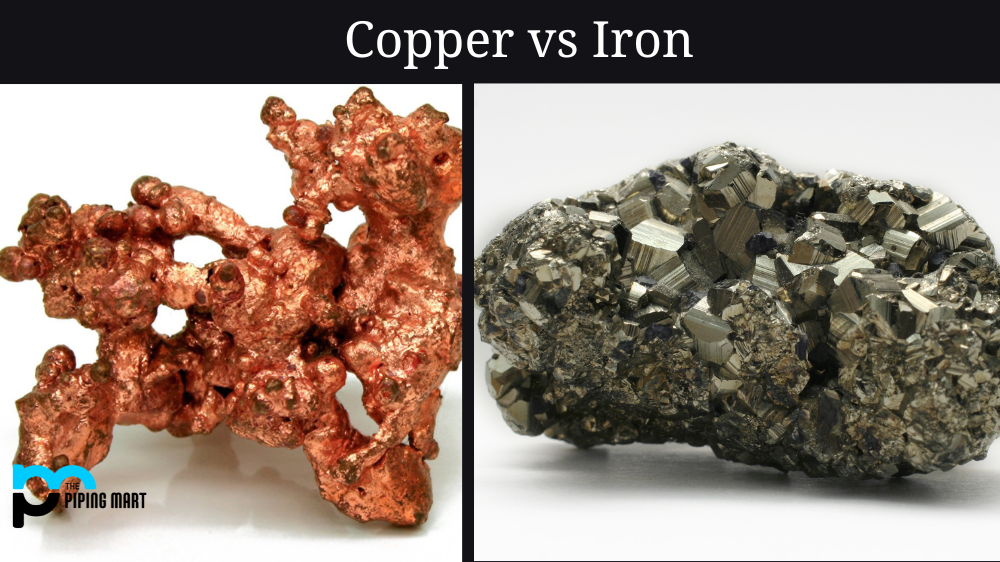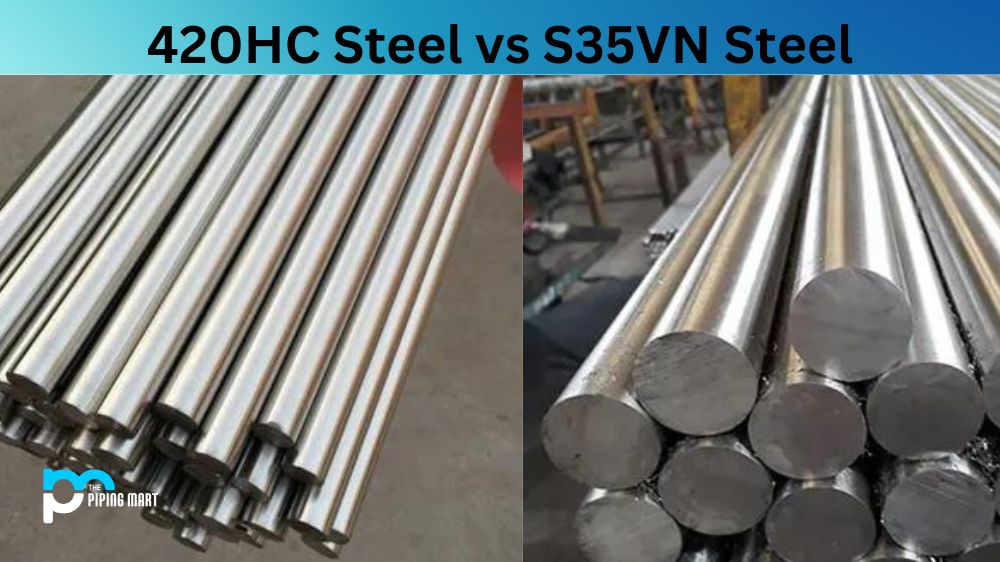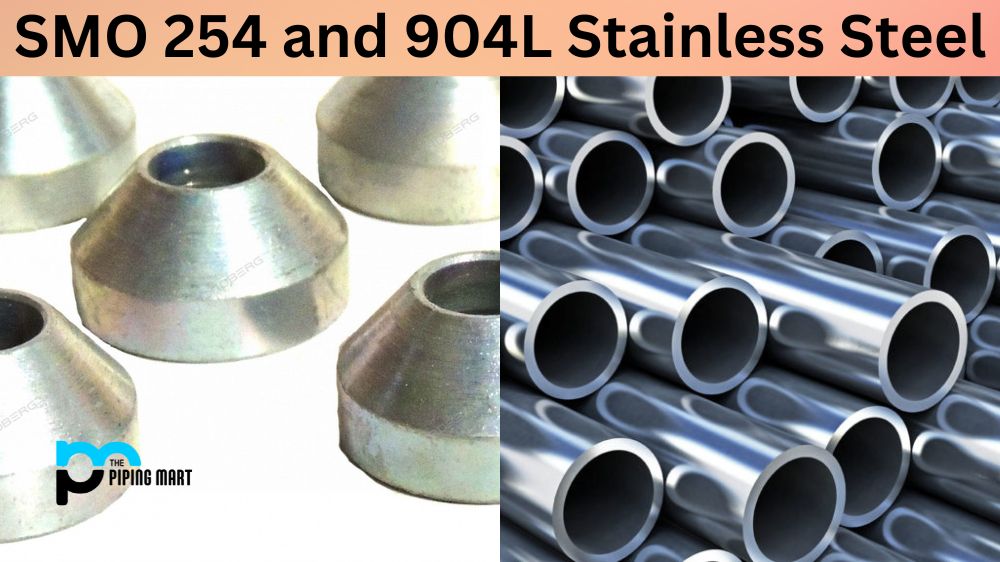Copper and iron are two of the oldest known metals. Both have been used throughout history for various applications, from tools to jewelry. But how do they compare? This article will delve into the differences between copper and iron, including their properties, uses, and benefits.
Properties of Copper vs. Iron
Copper is a soft metal that is highly malleable and ductile. It has excellent electrical and thermal conductivity, making it an ideal material for the wiring and electrical components. It is also corrosion-resistant in most environments, which makes it ideal for use in plumbing fixtures or outdoor decoration pieces. Its reddish-orange hue gives it aesthetic appeal as well.
Iron is much harder than copper and less malleable. It also has good electrical conductivity but is better than copper’s thermal conductivity—iron rusts readily when exposed to moisture, so it needs to be coated or treated to prevent corrosion. Iron has a silvery-gray color, giving it a sleek look when polished or painted.
Uses of Copper vs. Iron
Copper is often used in wiring because of its high electrical conductivity and malleability, which allows it to be bent into different shapes without breaking or cracking. It also has excellent heat resistance, so it can be used in heating systems and radiators without the risk of overheating or melting the material. It can be used in plumbing fixtures due to its corrosion resistance properties and in decoration pieces such as jewelry because of its attractive coloration.
Iron is commonly used in construction because it is strong enough to support large structures while still inexpensive compared to other materials such as steel or aluminum. Its strength also makes it an ideal material for tools such as hammers or wrenches since it won’t break easily under stress or strain like softer metals like copper might do. Additionally, its ability to hold an edge means that iron blades are often preferred over those made from softer metals like bronze or brass for cutting tasks such as slicing vegetables or carving wood.
Copper vs. Iron Price
When considering which metal to use for a construction project, copper and iron are two of the most common materials. While both metals have a variety of uses, an important factor to consider is cost. Copper is generally priced higher than iron, so projects that require large portions of metal will likely be more expensive if done with copper. However, some home improvement enterprises and industrial operations may find it more economical in the long term to use copper over iron due to its superior durability and resistance to corrosion. Thus, cost must be carefully balanced with long-term economic prospects when choosing between these two popular metals.
Copper vs. Iron Conductivity
Copper and iron are two metals that, while both able to conduct electric current, differ greatly in the speed and strength of their respective conductivity. Copper is known for its superior electrical conductivity compared to iron, meaning electric currents pass through it with more ease. For this reason, copper is often used in production lines where higher current transmission is required, such as industrial purposes like automotive manufacturing and computer circuits. Supporting calculations have also revealed that copper has a more stable response across a range of frequencies than iron does. However, iron’s admittance makes up for its poorer performance considerations in certain situations; It is much more durable and resistant to corrosion than copper which makes it ideal for electrical infrastructure requiring longer lifespans such as power grids and power cable systems.
Copper vs. Iron Weight
Copper and iron are two of the most common and versatile metals used in a variety of industries. Although both metals have a wide range of uses, there is one major difference that sets them apart – weight. Copper is significantly lighter than iron and can be easier to work with. This makes it ideal for use in items that need to be lightweight but still maintain strength, such as pipes or wires. On the other hand, iron has much more weight so it’s great for providing heavy-duty support or stability, such as in bridges or large construction projects. Whether you’re looking for something to get the job done quickly or need something that can handle a lot of load, copper vs iron weight certainly plays an important role in making your decision.
Better Conductor of Electricity
One of the primary advantages of copper over iron is that it is a better conductor of electricity. This means copper can be used more efficiently in electrical applications, such as wiring and electrical components. Additionally, copper is less likely to corrode than iron, which makes it a more durable option.
More Flexible than Iron
Another advantage of copper over iron is that it is more flexible. It can be used in applications where flexibility is important, such as plumbing and piping. Additionally, copper is less likely to break or crack than iron, making it a more durable option.
Lower Melting Point than Iron
Copper also has a lower melting point than iron, which means that it can be used in applications where a lower melting point is desirable. For example, copper can produce semiconductors and other electronic devices. Additionally, copper’s lower melting point makes it easier to work with than iron.
More Corrosion-Resistant than Iron
Copper is also more corrosion-resistant than iron, which means it will not rust or corrode as easily. This makes it an ideal material for applications where corrosion resistance is important, such as in marine environments. Additionally, copper’s corrosion resistance makes it easier to recycle than iron.
Higher Thermal Conductivity than Iron
Finally, copper has a higher thermal conductivity than iron, which means it can be used more effectively in applications where heat transfer is essential. For example, copper can be used in heat exchangers and radiators.
Conclusion:
When considering whether you should use copper or iron for your project, you need to consider several factors: cost, strength, hardness, malleability, etc. Ultimately both materials have their strengths and weaknesses; what works best will depend on the application you’re using them for! For example, if you need something that can handle high temperatures, then copper would be the better choice, whereas iron would be better suited for the task at hand if strength is more important. Each metal has its unique set of pros and cons; understanding these will help you make the right choice when deciding between copper and iron!

Abhishek is a seasoned blogger and industry expert, sharing his insights and knowledge on various topics. With his research, Abhishek offers valuable insights and tips for professionals and enthusiasts. Follow him for expert advice on the latest trends and developments in the metal industry.




